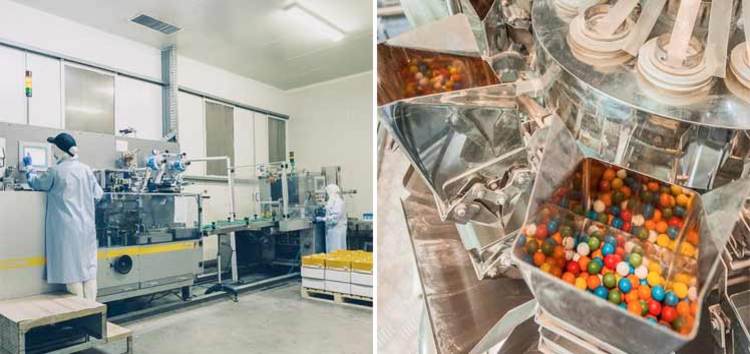FINTECC Funds Energy-Efficient Heating and Ventilation System for Al Jazeera Poultry

30% lower fuel consumption helps Jordanian poultry producer set course for sustainable expansion
Jordan’s increased appetite for chicken has represented a major opportunity for Al Jazeera, one of the country’s leading poultry producers. Driven by population growth, rising red meat prices and increased food spending, poultry consumption in Jordan increased more than 50 per cent between 2002 and 2013 and continues to grow steadily.
In hopes of capturing a larger share of Jordan’s burgeoning poultry market, Al Jazeera developed a plan to increase production by 60 per cent between 2014 and 2016. Boasting Jordan’s only fully integrated production system and a reputation for high-quality, halal chicken, the company set its expansion goals with meaningful competitive advantages. However, high and volatile energy prices in Jordan posed a significant challenge, especially as the company sought to compete with cheaper, frozen poultry products imported from abroad.
“Climate control and ventilation in the poultry houses requires a lot of energy, and energy is expensive in Jordan because we need to import all our fuel sources,” explains Al Jazeera research and development manager Wisam Ibrahim. “To stay profitable while keeping our prices competitive, we knew we had to improve the energy efficiency of our heating and ventilation systems.”
HVAC system
Following extensive research, Al Jazeera found a solution in the form of an innovative heating, ventilation and air conditioning (HVAC) system manufactured in France. By using heat exchangers to transfer heat from the warm air leaving the poultry house to the cooler air as it enters, researchers calculated that the system would allow the company to decrease its diesel consumption by 30 per cent.
In 2014, Al Jazeera implemented the energy-efficient system as part of a US $20.78 million EBRD investment programme, including a US $180,000 incentive grant from FINTECC to offset cost of installing the system in the company’s 534 poultry houses. According to Ibrahim, the new system has improved productivity not only by lowering the company’s energy bills, but also by improving air quality in the barns.
“The new HVAC system not only boosts energy efficiency, but also improves air quality by reducing dust and ammonia, which has an important impact on poultry health and performance,” he says. “Since implementing the system, we’ve seen improvements in flock performance, and I’m confident that better air quality has been a factor.”
The system is also good for air quality outside the poultry houses, Ibrahim notes. Thanks to its decreased diesel consumption, Al Jazeera has slashed its CO2 emissions by 600 tonnes per year.
Sustainable growth
In addition to reducing energy costs, the EBRD investment programme — the Bank’s first in Jordan’s agribusiness sector — is targeting further efficiencies through the construction of six new silos and a new feed mill that will enable the company to import feed ingredients directly, rather than relying on local suppliers.
“The scarcity of water in Jordan means we need to import most of our feed ingredients,” Ibrahim explains. “Feed accounts for 75 per cent of total costs in poultry production, so the ability to import corn and soya directly will help reduce the impact of commodity price fluctuations.”
According to Ibrahim, the energy and feed cost efficiencies that Al Jazeera has realized under the EBRD investment programme have helped the company expand in a way that is both economically and environmentally sustainable — with important social benefits, too.
“When Jordanian companies grow, Jordanian people benefit,” he says. “Over the last three years, we’ve built five new farms and expanded our share of the Jordanian poultry market from 12 to 15 per cent, and we’ve also increased our exports to neighbouring countries,” he reports. “This has resulted in the creation of some 500 new jobs for Jordanian people, as well as a positive environmental impact in the communities in which we operate.”
Energy and resource efficiency
As Al Jazeera expands, Ibrahim says, it is also expanding its commitment to energy and resource efficiency and renewable energy sources. All the water used in processing is treated and reused for agricultural purposes. Having already significantly reduced electricity usage at its slaughterhouses, the company is also building a 4.3MW solar plant that will eventually supply all the slaughterhouses’ energy needs.
“We invite customers and community members into our facilities to see how we operate. They immediately see the difference with the quality of our products, but are also increasingly interested in learning about our sustainability measures,” Ibrahim says.
“Our country is in the middle of the desert. The environment is fragile and resources are precious. As a business that benefits from them, it’s our responsibility to take care of them, too.”
